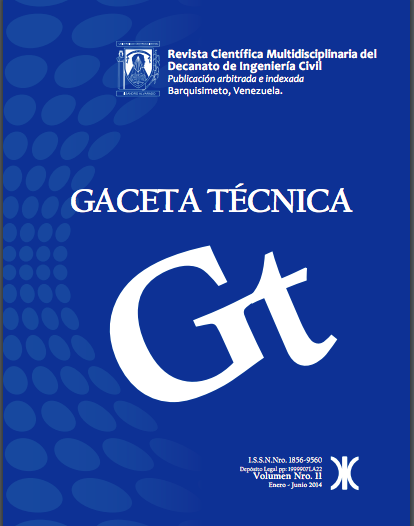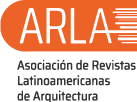A paradigm shift: distance education
Keywords:
distance education, information, knowledge, technologyAbstract
The process of technological change that occurred in recent decades began deep movements in global society, approaching human groups regardless of physical distance and crumbling social behavior, until yesterday petrified to change. This generated economic and social movements, triggering expectations of better living conditions, with consequent pressure on governments and society itself. Education as a basic structure of production of information and knowledge is not without it. The University Centroccidental aware of the above, designed and approved policies and standards to strengthen new forms of teaching and learning blended learning, which may contribute to increased institutional efficiency in the medium term. The digitization of the activities of teaching, research and extension will contribute to an enhancement of new forms of financing to support the new costs attributable to the implementation of new technology platforms
Downloads
References
[2] UNESCO. Declaración Mundial sobre la Educa- ción Superior en el siglo XXI: Visión y Acción, y Mar- co de Acción Prioritaria para el cambio y el Desarro- llo de la Educación Superior. Conferencia Mundial sobre la educación superior. La Educación superior en el siglo XXI, 09 de octubre de 1998.
[3] CASAS ARMENGOL, Miguel. Tendencias ac- tuales e innovaciones en la Educación Superior a distancia. Potencialidad y restricciones en Latino- américa. Educación Superior y Sociedad Vol. 10 No 2:53-72,1999.
[4] JANSSEN, José y STOYANOV, Slavi. European Commission J.R.C Technical Reports. Online Consultation on Expert ́s Views on Digital Competence, 2012 ISBN: 978-92-79-26061-2 (pdf).
[5] Comisión Económica para América Latina y el Caribe (CEPAL), Unión Europea. GUERRA, Massiel y JORDÁN, Valeria. Políticas Públicas de Sociedad de la Información en América Latina: ¿una misma vi- sión?. (Documento de proyecto). Santiago de Chile: Naciones Unidas, 2010.
[6] BARBERÁ, Elena (Coordinadora); ROMISZOWS- KI, Alexander; SIMONSON, Michael y SANGRÁ, Al- bert. Educación abierta y a distancia. Editorial UOC (Universitat Oberta de Catalunya), ISBN: 84-9788- 430-2.
[7] Fundación NADBIO [En línea]. http://www.fun- dacionnadbio.org . Revisado el 18/11/2013.
[8] FARNÓS, Juan Domingo (Juandon) [En línea]. La Sociedad y el Conocimiento, los Tic, su influencia social y educativa!. Fuente: @juandoming y http:// juandomingofarnos.wordpress.com/2011/09/12/la- sociedad-del-conocimiento-las-tic-su-influencia-so- cial-y-educativa/ . Publicado el 12/09/2011. Revisado el 18/11/2013.
[9] UCLA - Secretaría General [En línea]. Gaceta Universitaria Extraordinaria No 120. http://www. 94 ucla.edu.ve/secretaria/gacetas/gaceta%2010/especialización .
[10] UCLA - Secretaría General [En línea]. Gaceta Universitaria Ordinaria No 119. http://www.ucla.edu. ve/secretaria/gacetaucla/gacetas/g119/Reglamen- to%20de%20la%20Educacion%20a%20Distancia.pdf . Revisado el 14/11/2013.
[11] UCLA – Sistema de Educación a Distancia (SE- DUCLA). http://sed.ucla.edu.ve/
[12] POLO, Juan Diego [En línea]. 100 herramien- tas para monitorizar la Web Social. Fuente: http:// wwwhatsnew.com/2010/09/29/100-herramien- tas-para-monitorizar-la-web-social/ . Publicado el 29/09/2010. Revisado el 20/11/2013.
[13] FARNÓS, Juan Domingo (Juandon) [En línea]. Fuente: @juandoming y http://juandomingofarnos. wordpress.com/2011/02/28/100-herramientas-de-la- web-2-0-para-el-aula/ . Publicado el 28/02/2011. Re- visado el 19/11/2013.
[14] LARRAZ, Rosana [En línea]. Cuaderno Inter- cultural: Generadores online de material educa- tivo. Fuente: http://www.cuadernointercultural. com/tic-tools/generadores-online/ . Publicado el 30/03/2008. Actualizado el 07/12/2012. Revisado el 20/11/2013.
[15] SAMOILOVICH, Daniel. “Senderos de Innova- ción. Repensando el Gobierno de las Universidades Públicas en América Latina”. En GAZZOLA, Ana Lui- sa y DIDRIKSSON, Axel (Editores). Tendencias de la Educación Superior en América Latina y el Caribe. Editorial IESALC, UNESCO, 2008. Capítulo 9. p. 319- 380. ISBN: 978-958-98546-2-4.
[16] ALBORNOZ, Orlando [En línea]. El Gobierno reforzó la idea de graduar gente y no de producir conocimiento. Fuente: http://www.agenciadeno- ticias.luz.edu.ve/index.php?option=com . (Acceso Directo al Artículo: http://www.agenciadenoticias. luz.edu.ve/index.php?option=com_content&task= view&id=2811&Itemid=186 ). Revisado el 27/11/2013.
[17] IESALC-UNESCO. Instituto Internacional para la Educación Superior en America Latina y el Caribe. Informe sobre la Educación Superior en America Latina y el Caribe 2000-2005, la metamorfosis de la Educación Superior. 1a ed. Caracas: Editorial Metró- polis, C.A., 2006. ISBN: 980-6556-19-4.
Published
How to Cite
Issue
Section
The opinions expressed by the authors do not necessarily reflect the position of the editor of the publication or UCLA. The total or partial reproduction of the texts published here is authorized, provided that the complete source and electronic address of this journal is cited. Authors have the right to use their articles for any purpose as long as it is done nonprofit. The authors can post on the internet or any other media the final approved version of their work.







.png)




